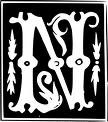 "We are men and our lot is to learn and to be hurled into inconceivable new worlds." ;)
"We are men and our lot is to learn and to be hurled into inconceivable new worlds." ;) I purchased this book (used) because the picture on the cover reminded me of a half-formulated thought that I have been carrying around - a thought about the nature of gravity.
To my dismay, the book contained no descriptions of a subjective experience of gravity being violated, which is really what I was hoping to find.
As I finished the book today, and as I can't seem to sleep right now, I thought I'd take some time to flesh that thought out just a bit more...
Gravity, as we all know, describes a relationship between two objects. Cognitive scientist that I am, I had to stop and wonder about the nature of object classification. That led me to wonder about what, if anything, we would know about gravity if we didn't or couldn't have distinct cognitive boundaries that separated one object from another. (Perhaps now you can begin to see my fascination with the book cover picture - each of the objects which appear to defy gravity can be classified/perceived as a single object: tree, man, mountain, etc.)
Furthermore, the gravitational force between two objects is determined by 1) the mass of each of the objects, and 2) the distance between the two objects. Why?
Is it possible that gravity is simply how we perceive the cognitive processes that are behind the association of one object's representation with that of another? Or the neurophysics that link one representation to another? In the brain, where does one representation end and another begin? How is that boundary defined (cognitively, and in the neural architecture), and wouldn't it be expedient if that boundary were as seamless as possible whenever possible? And, as it becomes necessary to allow for more information to be represented within the intervening space (greater distance) between two objects, should that not also be reflected in the neural architecture that contains the representations of those objects? How then would that be perceived and experienced in the relationship between the original two objects?
(Do you see where I'm going with this?)No doubt, this idea needs to be fleshed out quite a bit more before it produces anything testable, but we agreed that I was allowed to speculate. ;)

